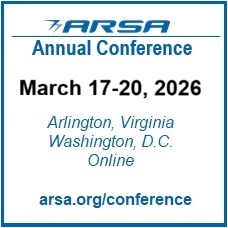ARSA to FAA: Starting on the Same Page through Training Access
On April 20, ARSA submitted a letter to the directors of the Flight Standards and Aircraft Certification Services requesting development of criteria for agency personnel to use when determining whether FAA Academy training will be accessible to non-FAA attendees.
The FAA’s Safety Assurance System (SAS) is a risk-based, data-supported system meant to standardize the procedures Aviation Safety Inspectors (ASI) use to evaluate and surveil certificate holders. The agency notes that the SAS is not a separate safety standard and does not impose additional requirements on certificate holders; however, as we all know, the devil is in the details.
ARSA has been in discussions with the FAA to obtain access to the SAS training provided to ASIs. In dialogue with members of the Consistency of Regulatory Interpretation Aviation Rulemaking Committee (CRI-ARC), the agency actively encouraged submission of requests to attend/access internal FAA trainings on SAS and other subjects. Unfortunately, agency personnel have since stated that certificate holders would not be granted access to internal trainings on the SAS system.
In its letter, ARSA proposed the agency’s default position should be to grant access unless the training in question contains safety-sensitive internal procedures or proprietary information, or is otherwise not subject to disclosure under the Freedom of Information Act. At the very minimum, ARSA requested the agency make all SAS and Safety Management System (SMS) trainings available to certificate holders. The association strongly believes that the success of any regulatory scheme depends on all parties having access to the same information.
If the FAA is going to implement a new process for conducting oversight, it is imperative that certificate holders understand that system and know where the boundaries lie. The agency indicated that it would be creating industry-specific trainings in the future; however, such efforts are duplicative and expensive. ASIs and certificate holders must be able to have a conversation based on mutual understanding of what is expected. Ensuring ASIs and certificate holders have the same information is a step in the right direction.
Stay tuned as the issue unfolds. To see all the ways ARSA is working as the voice of the aviation maintenance industry, visit the ARSA Works page.








